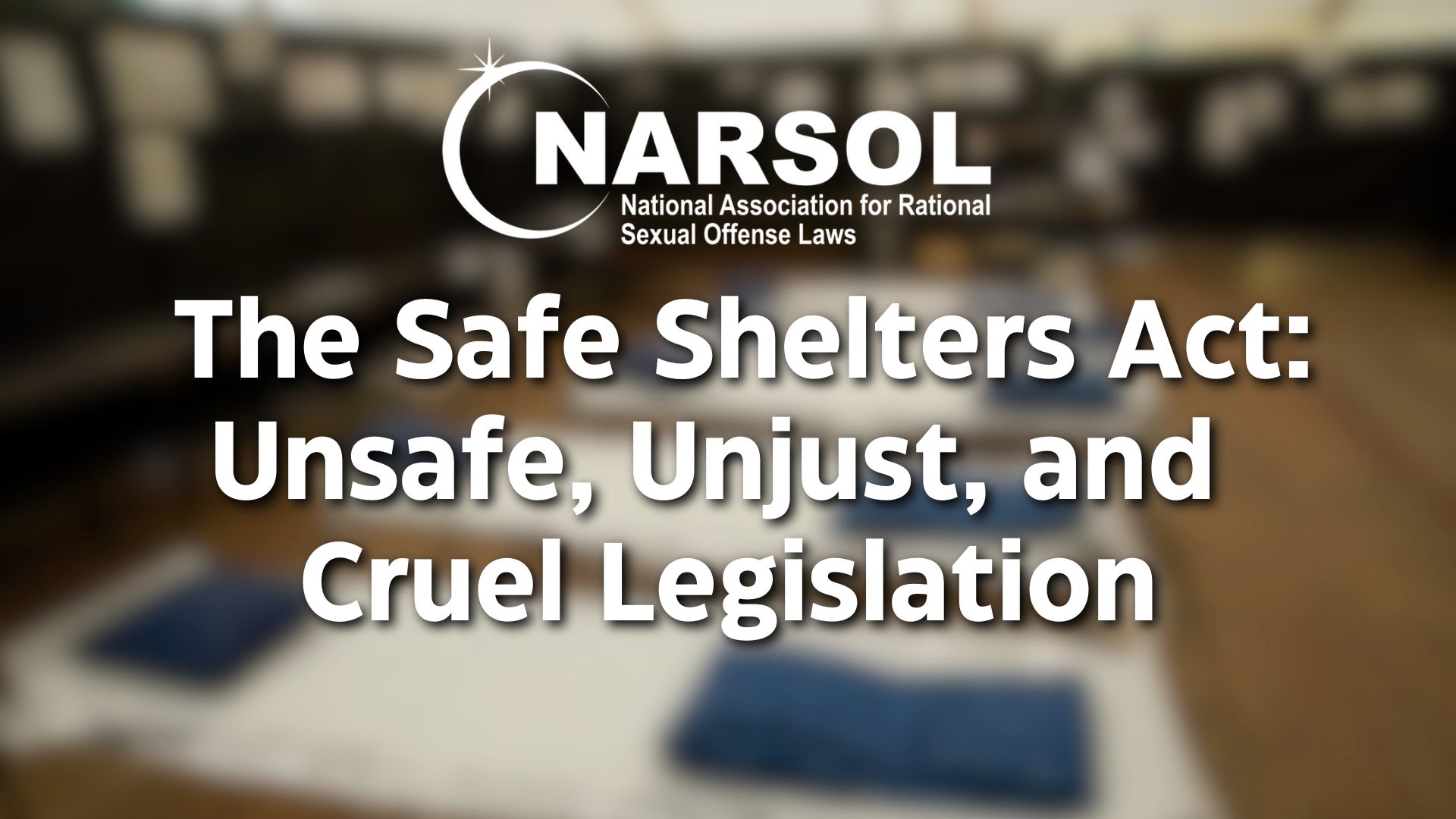Sex offenders — decision needed
By Sandy . . . Some members of our society are shadow people, so marginalized that they are hanging on by their fingernails. Some have a slightly firmer grip, but they are perched precariously close to the edge, so close that they can be hurled into the abyss by a mere word, accusation, or click of a mouse.
In Florida colonies of these shadow people survive, sleeping at night in the woods, under bridges, and in railroad yards, and now the man who is almost solely responsible for this is doing his best to take even those places away from them.
Derek Logue, a long time activist and no stranger to marginalization himself, has visited Florida sex offender encampments, taking food, clothes, and basic hygiene items for those living there. He says of the situation, “Homelessness is difficult to overcome in the best of circumstances, but the homeless registrant crisis in Miami is directly tied to the local residency restriction laws. People at the camps are forced to live there because the law restricts registrants from living virtually anywhere in Miami-Dade. Many people otherwise willing and able to find shelter are unable to do so because of the law alone.”
Nor is Florida the only state where stringent residency restriction laws – laws that are unsupported by any evidence — so severely limit housing options for sex offender registrants that cities have seen their homeless population explode. This has been reported in Oklahoma, Texas, Arizona, California, Colorado, and Wisconsin, to name only a few.
Not all on the registry are in such dire situations; some more gifted, more educated, more tenacious have managed to claw out a place, a community, to call their own. Even there, however, their hold on society is so tenuous that it can be easily destroyed.
A Virginia sex offender registrant with a ten year old offense, Daniel Silverman managed to create for himself a successful graphic art business. Going to various conventions, his company offered celebrity photography, a high-demand item, for interested clientele. He had employees; he paid taxes; he contributed to society and saved for the future. He felt secure. Then anonymous, online vigilantes started emailing warnings about him, complete with a link to his listing on the Virginia public registry, to the convention organizers where he displayed his craft. Within a year, his business was all but gone, and he was considering suicide. When he rallied and started wwwing his business, he continued receiving harassment in tabloids and on social media. Every attempt he made to support himself was destroyed.
In a little town in Pennsylvania, a man named Roger Gilbert has just been reelected for a second term as the fire chief of the small town’s volunteer fire department. The chief is chosen by the body of other firefighters. Roger is also a sex offender registrant in Pennsylvania, a fact known to the fire department, the town officials, and his community members. How or why is not known, but someone decided to make an issue of his status with this election, and the media made the most of the story.
In spite of the mayor expressing her support of the election process and Roger’s election, the publicity was too much; he resigned several days after it began.
Roger’s single offense was almost twenty years ago. Roger has said, “You know, the story you are telling kids is once you make a mistake, you will be punished for the rest of your life. I’ve changed my life for the better. Every day I get up and try to do good.” That apparently is not good enough for his enemies.
Those on registries throughout the nation, along with their families and their own children, have been and continue to be victims of vigilantes who not only send anonymous hate email but also vandalize, attack, destroy, and murder.
Public notification and registration is shown by decades of research and countless numbers of experts to have little to no public safety value. Given the negative consequences of such policies, the best solution to these issues is to eliminate the public registry.
Until we as a nation accept the wisdom of doing that, we need to decide on a course of action. We can either adopt policies that not only allow but also encourage former, law-abiding sex offenders to assimilate into society, punishing individuals and overturning policies that hinder that goal; or we can pass laws whereby every individual with a sexual offense conviction is released from prison with welfare and disability benefits already established.
We cannot continue as we have been. How can we in good conscience keep saying that we believe in rehabilitation and want former offenders to demonstrate that they have been rehabilitated and can rejoin society as productive members and then not only put in their way every stumbling block imaginable but also punish them over and over again every time they try?


